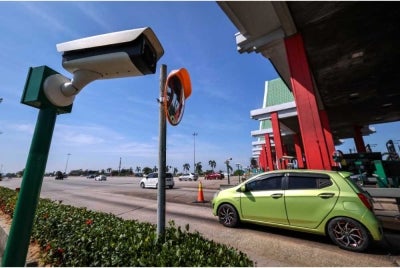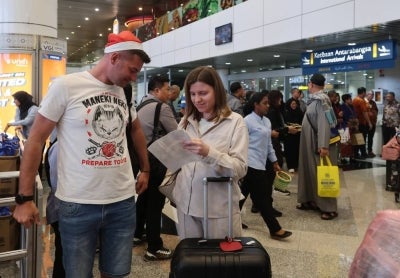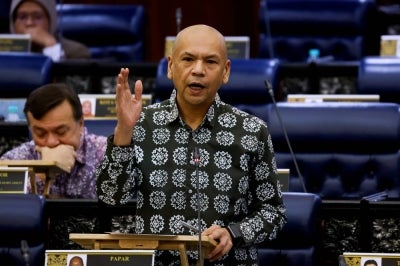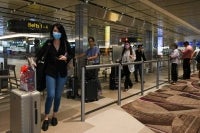Southeast Asian youths learn of diversity and inclusion at YSEALI workshop in KL
18 Aug 2022 04:49pm

Around 80 youths from the Southeast Asia region participated in the latest edition of the Young Southeast Asian Leaders (YSEALI) regional workshop - Photo from YSEALI official Facebook page
Themed "Diversity, Inclusion and Youth” the three-day workshop is organised by the US Embassy in Malaysia in partnership with a nonprofit organisation, Cultural Vistas.
It guides participants from ASEAN countries and Timor Leste in using different frameworks and tools to identify challenges to diversity and inclusion, develop strategies and determine best practices for managing diversity efforts and fostering inclusion in their workplaces environment.
Speaking to reporters after opening the workshop here Thursday, the US Embassy’s Deputy Chief of Mission Michael Newbill said the programme will help harness the extraordinary potential of youth to address critical challenges and expand opportunities to benefit their local communities.
"They are the leaders of tomorrow and we want to show that the US care about their future and wants to invest in them so that they can continue to contribute to their society in a constructive way,” he said.
The participants were selected from over 1,000 applicants and are from diverse backgrounds and expertise.
One of them was Fidel de Castro from Timor Leste, a Fisheries and Livelihoods Coordinator at the Blue Ventures, a marine conservation organisation that focuses on empowering marginalised fishers and their community in rural areas and promoting sustainable fishing among others.
He estimated that 40 per cent of the fishermen in his country are youth aged below 35 years old, hence it is crucial to equip them with the right skills and knowledge in order to enable them to be the agents of change in restoring ocean health and climate change.
"I want to use the knowledge that I gain here to help uplift the fishers, their family and community that I work with not just from the economic aspects but also their awareness towards creating a balance between livelihood and conservation of the ocean,” the 26-year old told Bernama.
A Malaysian participant, Amanda Kong who works as a community advocate at the Make It Right Movement said was keen to empower the marginalised community especially people with disabilities in their countries.
Kong who is visually impaired believed that such exchanges will allow her to formulate effective strategies and initiatives to raise awareness among the people on the importance of integrating people with disabilities into the mainstream workplaces.
Meanwhile, Apols E. Garmay from the Philippines said the workshop will help to strengthen her capacity building in her agriculture and technology start-up, Hidden Manna Farms which specializes in enriching the lives of smallholder farmers and their families.
Since 2017, her project has helped some 900 farmers in the remote areas of Northern Samar in the Visayas region to improve their income and livelihoods through diversifying products from their commercial crops, that include coconuts and mangoes as well as processing abacas (a banana species that is native to the Philippines) fibre for export markets.
"Through our initiatives, we have been able to eliminate middlemen and diversify their crops. The banana fibre for instance enjoys very good demand overseas and we are helping these farmers to export them to countries like the US, UK, the UAE and Saudi Arabia.
"They had benefitted from these farming projects. For example, one farmer that I work with, before joining the project his monthly income was an average of 5,000 pesos (RM400). Now he is able to bring home about 25,000 pesos (about RM2,000) a month.
"Most important also, by enriching them through innovative strategies, we are able to prevent them from migrating to big towns or even other countries in search of better jobs,” Garmay said.
Launched in 2013, YSEALI is the US government’s signature programme that aims to strengthen leadership development and networking in Southeast Asia through a variety of programmes and engagaments with the targeted group. - BERNAMA
Download Sinar Daily application.Click Here!














